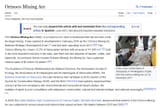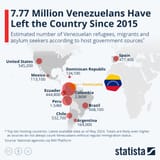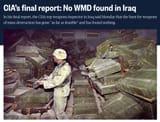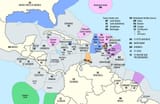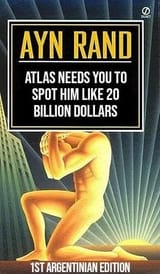>>519248101
"illegal ain't nothin' but a sick bird" ~ George Washington
Post-Revolutionary Trade (Late 1700s): Following the American Revolution, New England merchants, particularly from Salem and Boston, began to directly participate in the lucrative global trade. American ships started carrying Turkish opium to Canton, China, as a medium of exchange for Chinese tea, porcelain, and silks, competing with the British East India Company.
The "Old China Trade" (Early 1800s): American clipper ships became major players in carrying Turkish opium to China. Firms like Russell & Company were deeply involved, and fortunes that would later fund Ivy League institutions and industrial projects were built, in part, on the opium trade.
The Franklin Papers (c. 1810s): The business papers of the prominent Philadelphia merchant Stephen Girard detail his investments in cargoes that included Turkish opium destined for China, providing a concrete record of American financiers' involvement.
Tariff Acts (e.g., 1842, 1890): The U.S. Congress, in its various Tariff Acts, explicitly listed "opium" as an importable commodity and set duty rates for it. For example, the Tariff of 1842 imposed a duty of 75 cents per pound on crude opium and $1.00 per pound on prepared opium, acknowledging it as a legitimate, taxable article of commerce.
Chinese Exclusion Act (1882): While primarily an immigration law, the rhetoric surrounding the Act frequently cited Chinese opium dens and addiction as a social evil and a justification for banning Chinese laborers, further linking the drug to a specific ethnic group.
The Pure Food and Drug Act (1906): While not a ban, this landmark law required that any product containing opium, morphine, or heroin must say so on the label. This was the first major federal intervention and began the decline of the unregulated patent medicine industry, setting the stage for the more restrictive Harrison Narcotics Tax Act of 1914.
 10/19/2025, 1:17:17 AM
No.519233579
>>519233708
>>519233909
>>519233934
>>519234074
>>519234134
>>519234240
>>519234389
>>519234544
>>519234594
>>519234607
>>519234688
>>519234692
>>519234839
>>519234878
>>519234934
>>519235179
>>519235207
>>519235493
>>519235656
>>519236395
>>519236618
>>519236653
>>519236667
>>519239245
>>519240233
>>519240318
>>519240948
>>519241270
>>519241493
>>519241717
>>519241788
>>519241931
>>519242257
>>519242605
>>519243084
>>519243222
>>519243260
>>519243728
>>519243910
>>519244020
>>519244244
>>519244993
>>519245300
>>519245381
>>519245413
>>519245569
>>519245687
>>519246379
>>519246690
>>519246831
>>519247082
>>519248212
>>519248237
>>519248331
>>519250278
>>519250392
>>519252894
>>519253905
>>519253965
>>519254412
10/19/2025, 1:17:17 AM
No.519233579
>>519233708
>>519233909
>>519233934
>>519234074
>>519234134
>>519234240
>>519234389
>>519234544
>>519234594
>>519234607
>>519234688
>>519234692
>>519234839
>>519234878
>>519234934
>>519235179
>>519235207
>>519235493
>>519235656
>>519236395
>>519236618
>>519236653
>>519236667
>>519239245
>>519240233
>>519240318
>>519240948
>>519241270
>>519241493
>>519241717
>>519241788
>>519241931
>>519242257
>>519242605
>>519243084
>>519243222
>>519243260
>>519243728
>>519243910
>>519244020
>>519244244
>>519244993
>>519245300
>>519245381
>>519245413
>>519245569
>>519245687
>>519246379
>>519246690
>>519246831
>>519247082
>>519248212
>>519248237
>>519248331
>>519250278
>>519250392
>>519252894
>>519253905
>>519253965
>>519254412



